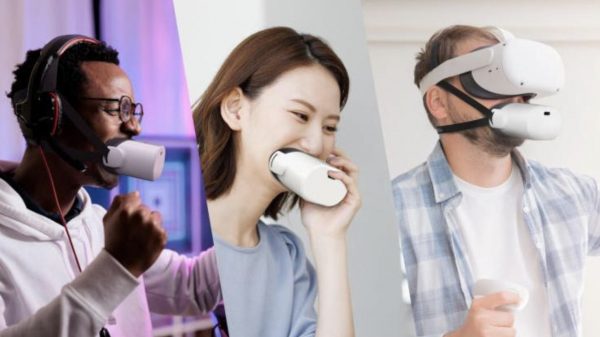A new study that was presented during the annual meeting of the Congress of Neurological Surgeons in the US has found that Vx Therapy – a combination of remote cognitive behavioural therapy and in-home VR sessions – is effective in relieving pain and improving mental health in people with chronic neck and back pain.
Despite its proven effectiveness for chronic pain and related mental and physical health problems, many people with chronic pain cannot get cognitive behavioural therapy (CBT) as there aren’t enough qualified therapists, lack of transportation to in-person appointments, and they may not consistently participate in therapy.
Matt McGirt MD, author and presenter of the study said, “Back and neck pain is often treated with potentially addictive pain medications and even surgery. This is the first commercially available VR product designed specifically to treat acute and chronic pain with scientific data to support those outcomes.”
A new era in healthcare
“This study shows that there is a less dangerous and highly effective alternative. The non-invasive, non-pharmacological nature of Vx Therapy makes it an ideal option for pain management in the post-opioid epidemic era. This is truly a breakthrough in safely alleviating the pain and suffering of millions of Americans,” stated Dr. McGirt.
Developed by digital health company Harvard MedTech, Vx Therapy addresses many of these challenges by providing remote therapy and in-home virtual reality sessions guided by a behavioural health specialist.
“This marks the beginning of a new era in healthcare as we have been waiting for a technology that is programmatically created to achieve results like this. Harvard MedTech has created a platform that serves our needs as neurosurgeons, but more importantly addresses an unmet need for our patients,” noted McGirt.
The breakthrough
During the study, 145 workers’ compensation patients suffering from chronic degenerative neck/back pain took part in a 14-week Vx Therapy program, which combined VR therapy with cognitive behavioural therapy. The program included weekly telephone sessions with trained therapists and involved completing 50 modules of virtual reality therapy.
The patients in the study were asked to rate their levels of pain, anxiety, and severity both before and immediately after the therapy sessions. They also noted the time at which their pain started to return. Various measures were recorded, including daily pain intensity, pain behaviour, pain interference, as well as levels of anxiety and depression.
“As a practicing neurosurgeon, it is groundbreaking to have something to address pain that treats the entire patient, not just the symptoms of pain,” said Nicholas Theodore MD, co-author of the study and professor of Neurosurgery at Johns Hopkins University.
A new proven solution
At the end of the 14-week program, findings revealed that the therapy significantly reduced pain by 33 per cent during its use, which lasted for an average duration of 2.8 hours after each session. Also, anxiety levels were reduced by an impressive 46 per cent.
According to Dr McGirt, “Patients’ pain levels were cut in half with this treatment, and this relief lasted up to four hours after the session. These results are what we see when a person takes a four-hour opioid tablet, but without the side effects and without the danger of addiction.”
“We are also seeing that the person’s ability to function increases during the 14-week treatment. These findings have tremendous implications for how we treat pain in a rapidly ageing population. Now we have a proven solution that is effective, highly scalable, and conveniently delivered in a home setting,” said McGirt.
Isa Muhammad is a writer and video game journalist covering many aspects of entertainment media including the film industry. He's steadily writing his way to the sharp end of journalism and enjoys staying informed. If he's not reading, playing video games or catching up on his favourite TV series, then he's probably writing about them.






































